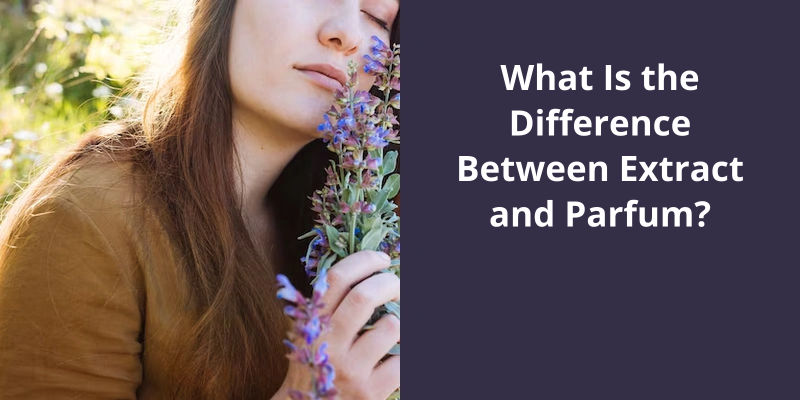The human brain has an extraordinary capability to associate smells with memories and emotions, providing a complex and intriguing dimension to the way we perceive our surroundings. This phenomenon, known as olfactory memory, has fascinated scientists and researchers for years, as it holds the key to understanding the intricate workings of the human mind. Olfactory memory has been found to have unique qualities such as persistence and high resistance to interference, making it a fascinating field of study. From the nostalgia triggered by a familiar scent to the emotional response invoked by a new aroma, olfactory memory plays a significant role in shaping our experiences and adding depth to our perceptions.

What Is Anthropology of Smell?
Anthropology of smell is a fascinating field of study that involves the exploration of the intricate relationships between humans and odors. It seeks to understand how people perceive and experience smells across cultures and history. This interdisciplinary area of research sheds light on the ways in which smells shape human behavior, social interactions, and identity.
The way in which we approach and prioritize certain smells reveals much about our values, beliefs, and worldview.
By analyzing the way in which people respond to and interact with smells, we can better understand the impact of industrialization, urbanization, and globalization on the natural world and human populations.
As we continue to face an ever-increasing array of challenges in the modern world, the study of smells promises to provide us with a valuable tool for understanding and addressing some of these complex issues.
The Impact of Smell on Tourism and Travel, Including the Development of Scent Museums and Tours.
- The use of scents to enhance tourism experiences is a growing trend
- Scent museums offer a unique way to explore the sense of smell
- Smell can evoke memories and emotions, making it a powerful tool for tourism
- Scent tours can be designed to showcase local aromas and flavors
- The sense of smell can be used to enhance branding and marketing efforts in the tourism industry
The power of smells to evoke memories is a fascinating subject that’s intrigued scientists for years. From the smell of freshly cut grass to the scent of a loved one’s perfume, these aromas can transport us back in time and awaken vivid memories and emotions. But can we recreate smells in our minds accurately enough to experience them as if they were actually present? Let’s explore this intriguing topic further.
Can You Smell a Smell From Memory?
Our sense of smell is closely tied to our memory, and many researchers believe that it’s the most powerful of all our senses when it comes to evoking memories. This is because the olfactory bulb, which is responsible for processing smells, is located next to the amygdala and hippocampus – the areas of the brain that are involved in memory and emotion.
Interestingly, people who’ve lost their sense of smell often report feeling like they’ve lost a part of their identity, as the ability to smell is tied to so many memories and experiences. On the other hand, those who’ve an extremely keen sense of smell may find that certain odors are overwhelming or even unpleasant, as they’re reminded of difficult experiences from their past.
Our sense of smell is heavily influenced by context and expectation – for example, if we expect a certain food to smell a certain way, we may perceive that smell even if it isnt actually there. Additionally, different people may perceive the same smell differently, depending on their individual experiences and associations.
While we may not be able to fully understand the intricacies of this relationship, we can certainly appreciate the power of a certain smell to transport us back in time and evoke memories and emotions that are deeply rooted in our past experiences. Whether it’s the scent of freshly baked bread or the perfume of a loved one, these smells have the ability to connect us to our memories in a profound and meaningful way.
Our sense of smell may seem simple at first glance, but it’s actually a complex physiological process that plays a crucial role in our everyday lives. From detecting a gas leak to enjoying the aroma of freshly baked bread, our sense of olfaction can provide important cues about the world around us. In this article, we’ll explore the fascinating science behind the study of smell in humans, and delve into some of the latest research in this field.
What Is the Study of Smell in Humans Called?
In humans, the study of smell is called olfactory science or olfactology. It’s the study of the olfactory system, a complex network of sensory neurons that detect and process odorant molecules and transmit information to the brain. This system plays a crucial role in our ability to perceive and identify odors, as well as in many other physiological processes, such as memory, emotion, and taste.
The olfactory system is unique among the sensory systems because it’s the only one that doesn’t pass through the thalamus before reaching the cortex. Instead, information from the olfactory epithelium is transmitted directly to the olfactory bulb, which is located in the front of the brain.
Olfactory science encompasses many different areas of research, including the chemical composition of odors, the structure and function of the olfactory system, the mechanisms of olfactory processing, and the various factors that can influence olfactory perception and behavior. It’s applications in many different fields, such as medicine, food science, and fragrance industry.
Source: Aromachology
The olfactory system is one of the most complex sensory systems in the human body and plays a vital role in our interactions with the environment. In psychology, the sense of smell has been studied extensively to understand it’s impact on behavior, emotion, and cognition. Let’s delve deeper into the fascinating world of olfaction and it’s significance in psychology.
What Is the Sense of Smell in Psychology?
The olfactory system plays a unique and important role in psychology and human behavior. It’s responsible for detecting a wide range of odor molecules and translating them into neural signals, which are then processed by the brain. Although the sense of smell may seem less significant compared to other senses, recent research has revealed that it’s a profound impact on our emotions, memories, and social interactions.
In psychology, olfaction is recognized as a powerful tool for affecting mood and behavior. Studies have shown that certain aromas can alter our perceptions of the environment, induce relaxation, and even influence our choices. Because smell is closely linked to memory, it can also be used to influence attitudes, motivate behavior or teach new things.
It’s linked to the limbic system of our brain that hosts our emotions, motivation, and memories, which influence our moods and behaviors rather than our rational thoughts. Hence, certain scents can trigger powerful emotional responses, such as the feeling of comfort and security associated with the smell of freshly baked cookies in childhood.
Additionally, studies have shown that our response to particular smells may be influenced by social context. For instance, the scent of a particular perfume may evoke positive emotions in one culture, whereas it may be repulsive in another. Similarly, a specific odor may be considered prestigious in one culture, while being considered as something unacceptable in another.
Through the sense of smell, humans also have the ability to communicate subconsciously with others. For example, body odor contains social cues like gender, age, and even health status, which influences attraction, trust, and competition in social contexts.
Even though it’s weaker in humans compared to other animals, it’s influence on our emotions, attitudes, and social interactions can’t be ignored. The sense of smell may be considered as a medium of non-verbal communication, conveying important information about our environment and the people around us. Therefore, it’s important to study and understand the sense of smell in psychology to unlock it’s potential in influencing human behavior and improving interaction between individuals and cultures.
Cultural Differences in the Meaning and Perception of Certain Smells
The meaning and perception of certain smells vary based on cultural differences. These differences can affect how people react to different aromas and interpret their significance in various social contexts.
But for some people, the experience is quite different. Instead of disgust, they feel pleasure and even excitement at the smell of unexpected or strange things. This feeling is known as benign masochism, and it may be more common than you think. So why do some people enjoy these pungent odors? Let’s take a closer look at this curious phenomenon.
What Is It Called When You Like the Smell of Weird Things?
Benign masochism is the term used to describe the enjoyment of potentially unpleasant or even painful experiences. For some individuals, this includes the enjoyment of certain smells that most people find off-putting. This phenomenon isn’t well understood, and more research is needed to understand why some people are attracted to unusual smells. But there are several theories that can help explain this behavior.
One theory suggests that the allure of a strange smell may be related to the evolutionary development of the brain. Humans have evolved to be attracted to novel and potentially dangerous stimuli, as they often signal a need for heightened awareness and vigilance. For example, our ancestors may have been attracted to the smell of smoke because it signaled the presence of fire, a potential danger that required immediate attention. This same evolutionary impulse may explain why some people are drawn to the smell of gasoline or other unusual odors.
Some individuals have a heightened sensitivity to sensory stimuli, which can manifest in a range of ways, including an attraction to unusual smells. For these individuals, the unique sensory experience of a strange smell may be pleasurable in a way that’s difficult for others to understand.
For many people, the experience of sniffing a strange odor is both pleasurable and exciting. Some even seek out unusual smells, collecting and cataloging them in a process known as olfactophilia.
The Psychology Behind Olfactory Preferences: Exploring Why Certain Smells Are More Appealing to Some Individuals Than Others.
This topic examines why people have different preferences for smells and how psychology plays a role in these preferences.
If you’ve ever found yourself overwhelmed by certain smells, you may be experiencing hyperosmia – a heightened sense of smell. There are a variety of reasons why someone may experience this heightened sensitivity, ranging from genetics to migraines and hormone changes. And while the impact of hyperosmia can vary from person to person, it can also affect one’s taste. In the following sections, we’ll dive deeper into the causes and effects of hyperosmia and explore ways to manage it.
Why Do Smells Bother Me?
Hyperosmia is a condition that affects a persons sense of smell. It’s characterized by an increased sensitivity to odors, which can make everyday life difficult and uncomfortable.
One of the main causes of hyperosmia is genetics. Some people are simply born with a heightened sense of smell, which can make them more sensitive to certain odors and chemicals. Hormones can also play a role in hyperosmia, particularly in women. Hormonal changes during menstrual cycles, pregnancy, and menopause can all affect a persons sense of smell.
Exposure to certain chemicals and environmental factors, such as pollution and cigarette smoke, can all make a person more sensitive to odors. Some medications can also cause hyperosmia as a side effect.
If you’re experiencing hyperosmia, it’s important to talk to your doctor. They may be able to help you find ways to manage your symptoms and reduce your sensitivity to odors. This may include avoiding certain triggers, using air filtration systems, or taking medication. With the right treatment, many people with hyperosmia are able to lead normal, comfortable lives.
Conclusion
Whether it's the smell of freshly baked cookies that brings back fond memories of childhood, or the scent of a loved one's perfume that reminds you of them even after they've gone, our sense of smell has a unique power to trigger powerful and long-lasting memories.





